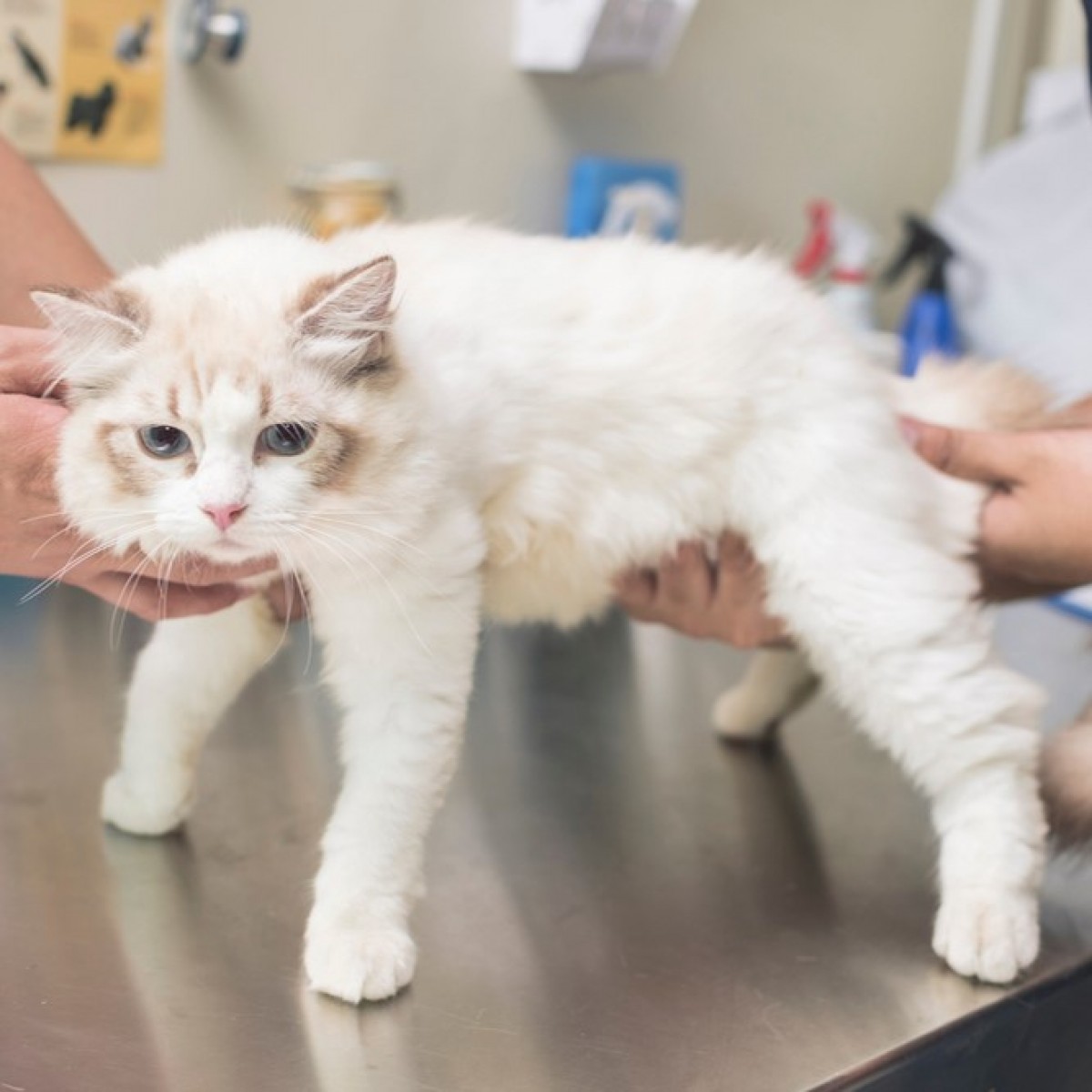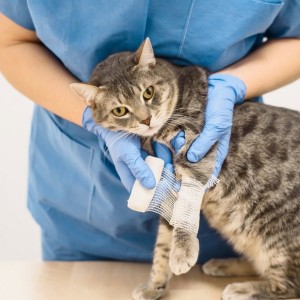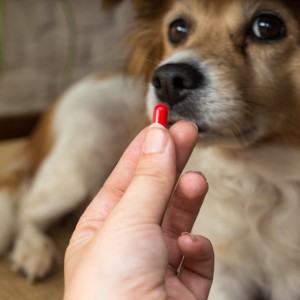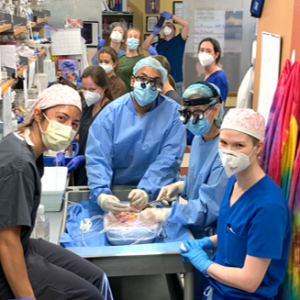Clinicopathologic, GI effects of prednisone with probiotics to dogs
The effect of administering of probiotics or twice-daily omeprazole on glucocorticoid-induced gastric bleeding in dogs is unknown. The aim of this double-blinded, placebo-controlled randomized trial was to compare gastrointestinal bleeding among dogs administered placebo, prednisone (2 mg/kg q24h), prednisone with omeprazole (1 mg/kg q12h), or prednisone with probiotics (Visbiome, 11.2-22.5 billion CFU/kg q24h) for 28 days.
Clinical signs and endoscopic gastrointestinal mucosal lesion scores of 24 healthy research dogs at baseline (t1), day 14 (t2), and day 28 (t3) were compared using split-plot repeated-measures mixed-model ANOVAs.
Data showed that fecal score differed by treatment-by-time (F [6,40] = 2.65, P < .03), with higher scores in groups receiving prednisone at t3 than t1. Nineteen of thirty-three episodes of diarrhea occurred in the prednisone with omeprazole group.
Gastric mucosal lesion scores differed by treatment-by-time (F [6,60] = 2.86, P = .05), among treatment groups (F [3,60] = 4.9, P = .004), and over time (F [2,60] = 16.5, P < .001).
Post hoc analysis revealed lesion scores increased over time for all groups receiving prednisone. At t3, scores for the prednisone (8.7 ± 4.9) and prednisone with probiotics (8.7 ± 4.9) groups differed significantly from placebo (1.8 ± 1.8; P ≤ .04), whereas scores for the prednisone with omeprazole (6.5 ± 5.5) group did not differ from placebo (P = .7). Ulcers occurred only in dogs receiving prednisone.
The authors concluded that prednisone-induced gastric bleeding. Co-administration of omeprazole partially mitigated bleeding, but a similar protective benefit was not demonstrated by co-administration of the evaluated probiotic.
Mariola B Rak et al. “Clinicopathologic and gastrointestinal effects of administration of prednisone, prednisone with omeprazole, or prednisone with probiotics to dogs: A double-blind randomized trial.” J Vet Intern Med. 2023 Mar;37(2):465-475. doi: 10.1111/jvim.16672.














List
Add
Please enter a comment